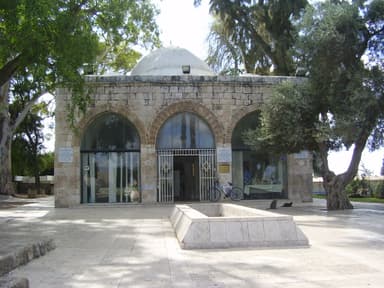Observation ·
Why the Word “Amen” Has Changed So Little in Its 2,500-Year History
By PhilologosIts meaning in the Bible is “Truly said!” or “So be it!” After that it acquired its intense liturgical emotion, and then hasn't changed much since.

Observation ·
Its meaning in the Bible is “Truly said!” or “So be it!” After that it acquired its intense liturgical emotion, and then hasn't changed much since.

Observation ·
An ancient rabbinic dispute pitted eminent scholars against one another. The Taḥanun prayer is rooted in that story of public shame and private distress.

Observation ·
It's at once the most famous affirmation of Jewish belief—no other sentence in Judaism is more powerful—and the most misunderstood.

Observation ·
In a biblical book many of whose poems express anxiety and apprehension, Psalm 104 is a confident and joyous singalong.

Observation ·
The promise and peril of calling angels to bless your Sabbath table.

Observation ·
The two great liturgical songs of Yigdal and Adon Olam offer rival attempts to summarize the essence of Judaism.

Observation ·
Nishmat starts with the wide-open sky and the wings of eagles; it ends deep inside the recesses of the body, in our vital organs.

Observation ·
The ancient priesthood, the Pharisees, the kabbalists, the Ḥasidim—each of these and more have made a stand in the prayer book for what they think Judaism should be.

Observation ·
“Here am I, poor in deeds," it begins. Where did it come from and, more importantly, what does it say to us?

Unlock the most serious Jewish, Zionist, and American thinking.
Subscribe Now